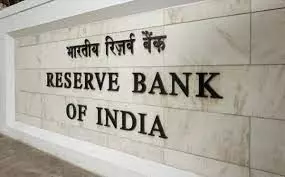Bengal's revenue behind national average: RBI study
The percentage of the state’s own tax revenue of the GSDP for West Bengal is just five per cent which is lower than the national average of seven per cent
image for illustrative purpose

Kolkata: West Bengal is behind the national average in terms of the state’s own revenue or gross state domestic product (GSDP) percentage, as per the recent findings of the Reserve Bank of India (RBI) on state finances.
Both in terms of the state’s tax revenue and the non-tax revenue, as per the RBI findings, West Bengal is behind the national average.
According to it, the percentage of the state’s own tax revenue of the GSDP for West Bengal is just five per cent which is lower than the national average of seven per cent.
The situation in the case of non-tax revenue is more pathetic as regards West Bengal. As per the findings, the percentage of the state’s non-tax revenue of the GSDP for West Bengal is just 0.4 per cent which is lower than the national average of 1.2 per cent.
As per the RBI findings, the state government’s current spending for infrastructure development as a percentage of GSDP is just two per cent.
Economists think that following this factor is the fallout of the heavy state excise-dependent state’s tax revenue structure in West Bengal. According to them, a healthy state’s tax revenue component in any state is dependent much on big-ticket investment both in the manufacturing as well as the services sector.
This is exactly the area where West Bengal is lagging behind other major states and economists believe that the state’s internal policies as regards to land procurement and granting of special economic zone (SEZ) status, are mainly responsible for the drought in big-ticket investment.
Economists feel, that the West Bengal government’s policy on “no state role in land procurement for industry” is making the operators in manufacturing sectors averse towards investing in the state. Considering the fragmented land-holding nature in West Bengal, it is virtually impossible for investors requiring huge plots of land at one go for a project to interact with individual land-owners for land purchase without any kind of state intervention in the process.
Similarly, economists say, it is the West Bengal government’s reluctance to grant fresh SEZ status in the state, that big-ticket investors in the services sectors are shying away from investments.

